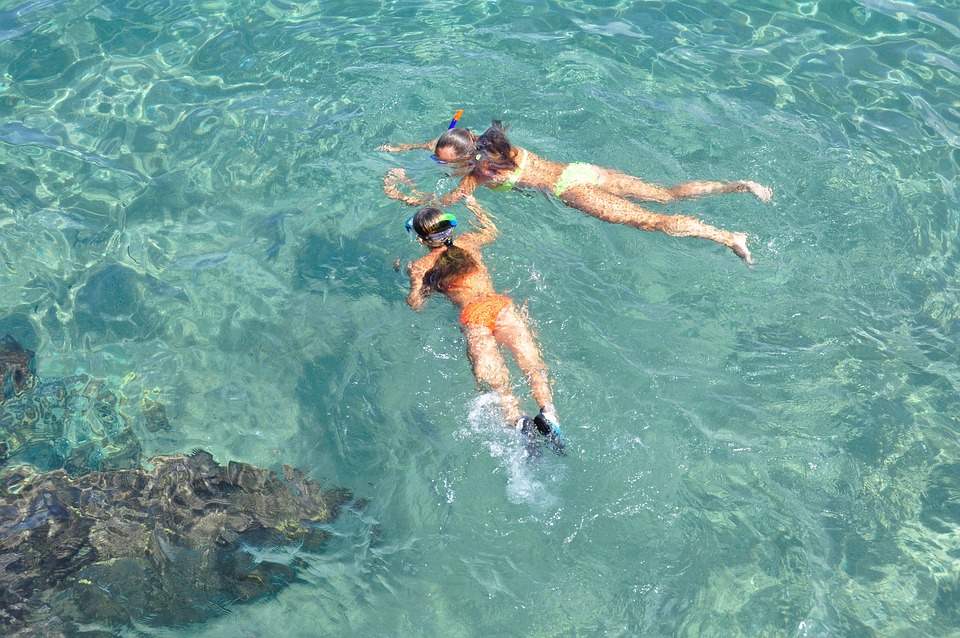Table of Contents
Introduction
Snorkelling is an exhilarating underwater activity that allows you to explore the wonders of the ocean. Whether you are a
beginner or have some experience, it is vital to prioritize safety while enjoying this incredible adventure. In this
article, we will provide you with essential guidelines and discuss the necessary equipment to ensure a safe and
unforgettable snorkelling experience.
Important Guidelines for Safe Snorkelling
Before diving into the mesmerizing world beneath the waves, it is crucial to be aware of some vital guidelines to keep
yourself safe. Here are some essential tips to consider:
-
Select the Right Location
Choose a snorkelling spot suitable for beginners. Look for calm, clear, and shallow waters that offer good visibility
to give you a comfortable and safe experience. Avoid areas with strong currents, sharp reefs, or boat traffic. -
Always Snorkel with a Buddy
It is highly recommended to never snorkel alone. Always swim with a buddy, so you can assist each other if needed and
share the joy of discovering the underwater world. Additionally, it ensures that someone is there to help in case of
an emergency. -
Learn Proper Breathing Techniques
Breathing through a snorkel tube may feel strange at first, but it is essential to practice and become comfortable
with it. Take slow and deep breaths, allowing the equipment to do its job. Familiarize yourself with breathing from
the mouth rather than the nose. -
Do Not Touch Marine Life
While snorkelling, it is essential to remember not to touch or disturb marine life. Give them their space and observe
from a distance. Touching coral reefs or fish can harm them and can even cause injuries to you due to their defensive
mechanisms. -
Be Aware of Water Depth
Pay attention to the depth of the water to avoid accidentally swimming too close to the ocean floor or getting too
far from the surface. Stay within your abilities and comfort zone, especially if you are a beginner.
Essential Snorkelling Equipment
To have a safe and enjoyable snorkelling experience, it is necessary to have the right equipment. Here are the essential
items you need:
-
Mask and Snorkel
A snorkelling mask lets you see underwater, while a snorkel tube enables you to breathe while your face remains in
the water. Look for a mask that fits your face properly and provides a clear and wide field of vision. Select a
snorkel with a flexible mouthpiece and a splash guard to prevent water from entering. -
Fins
Snorkelling fins not only enhance your swimming ability but also reduce fatigue. Choose fins that fit comfortably,
providing good propulsion without being too restrictive or causing blisters. Practice using them before heading into
deeper waters to ensure you are comfortable swimming with them. -
Buoyancy Aid
For beginners or those lacking confidence in the water, using a buoyancy aid such as a snorkelling vest or a
lifejacket is highly recommended. It provides additional flotation and ensures you stay on the surface comfortably. -
Sun Protection
Protecting your skin from the sun is crucial during snorkelling. Apply a waterproof sunscreen with a high SPF before
entering the water. Additionally, consider wearing a rash guard or a wetsuit to protect yourself from both the sun
and potential scrapes. -
Safety Whistle and Dive Flag
Carrying a safety whistle helps grab attention if you require assistance. Attaching a dive flag to your snorkel or
floatation device alerts boats to your presence in the water, reducing the risk of accidents.
FAQs
Q: Can I snorkel if I don’t know how to swim?
A: It is not necessary to be an expert swimmer to snorkel, but it is essential to be comfortable in the water and have
basic swimming skills. Using a buoyancy aid or snorkelling vest can provide additional support for beginners.
Q: How do I prevent my mask from fogging up?
A: To prevent mask fogging, apply an anti-fog solution before entering the water. Additionally, make sure the mask fits
snugly against your face and avoid touching the inner surface of the lens.
Q: What should I do if water enters my snorkel?
A: If water enters your snorkel, do not panic. Simply lift your head out of the water and exhale forcefully to clear the
water through the purge valve at the bottom of the snorkel’s mouthpiece. Practice this technique before snorkelling to
become comfortable with it.
Q: Are there any age restrictions for snorkelling?
A: Snorkelling has no strict age restrictions. However, it is essential to ensure that children are always supervised by
adults and that everyone follows the necessary safety guidelines.
Q: What should I do in case of an emergency?
A: In case of an emergency, stay calm and remember to stay afloat. Seek assistance from your snorkelling buddy or any
nearby individuals. If needed, use your safety whistle to attract attention, and remember to prioritize your safety above
all else.




